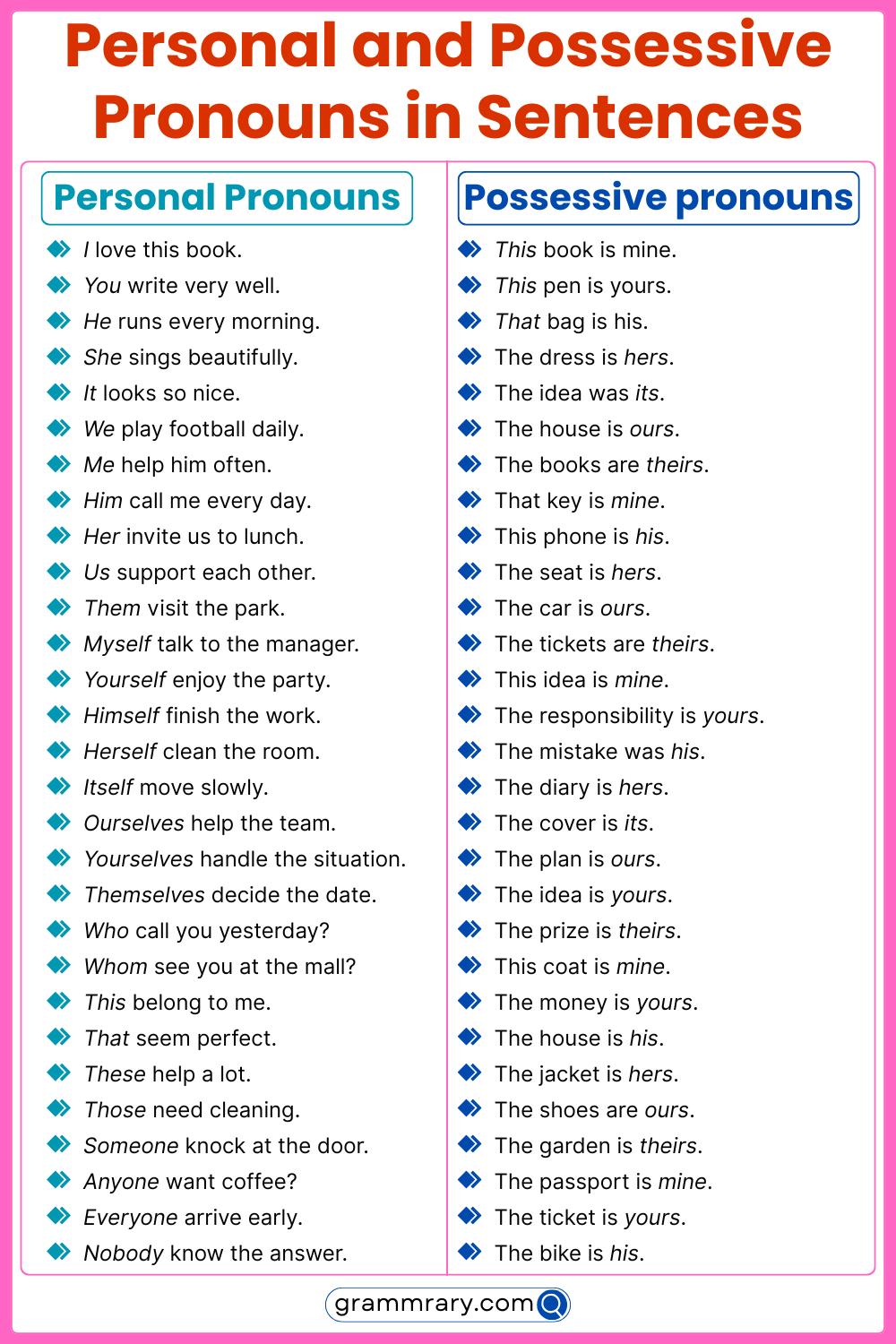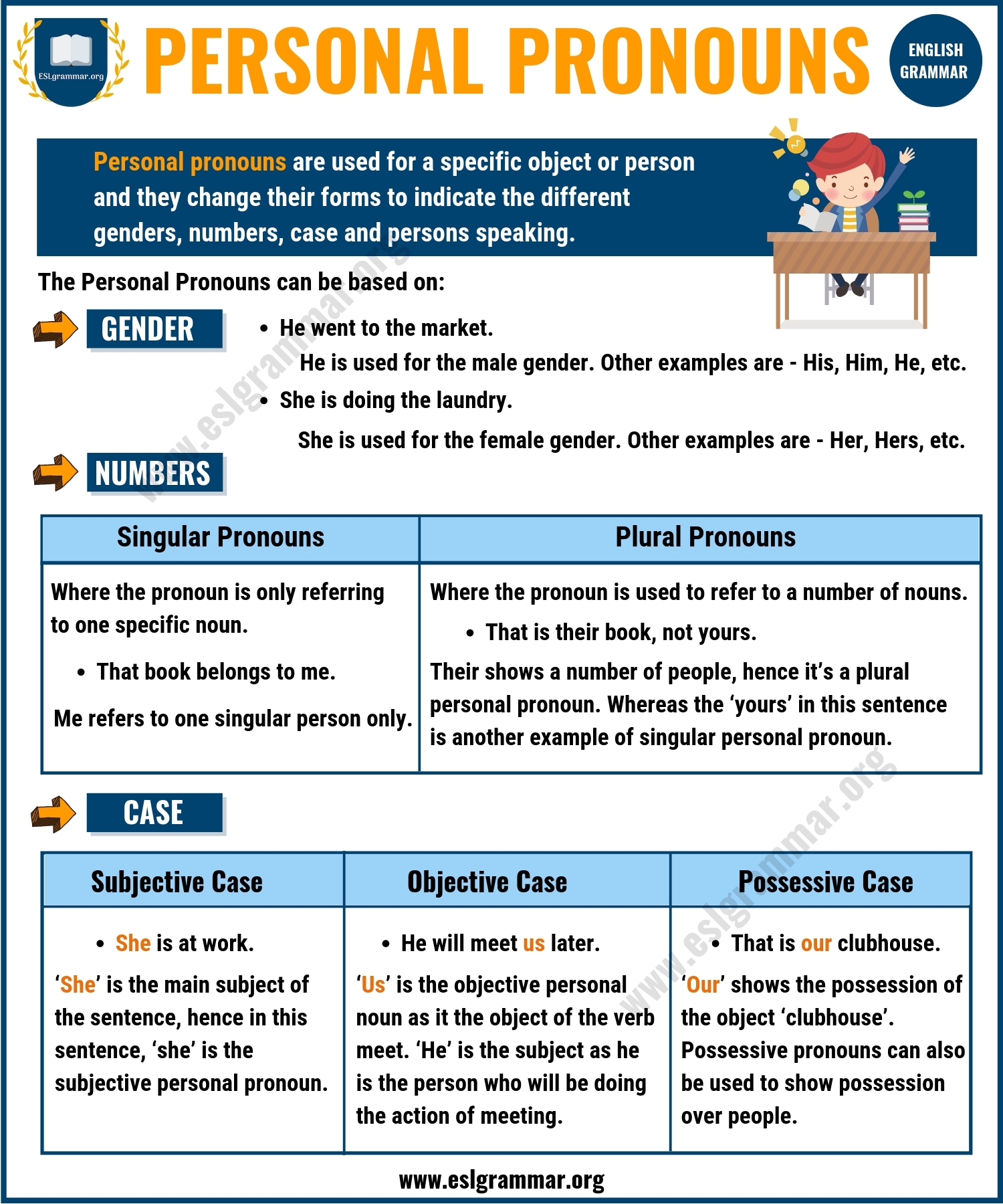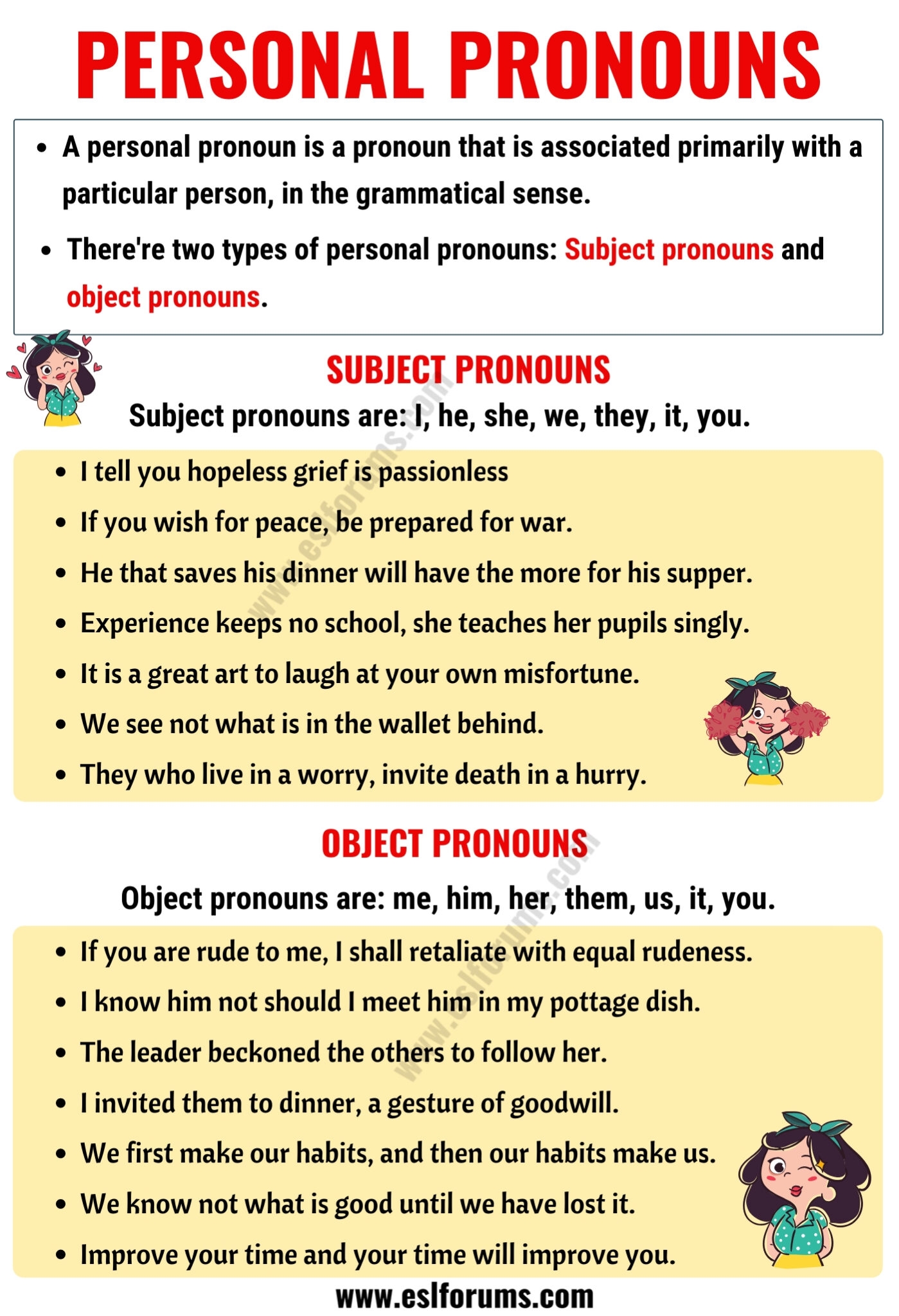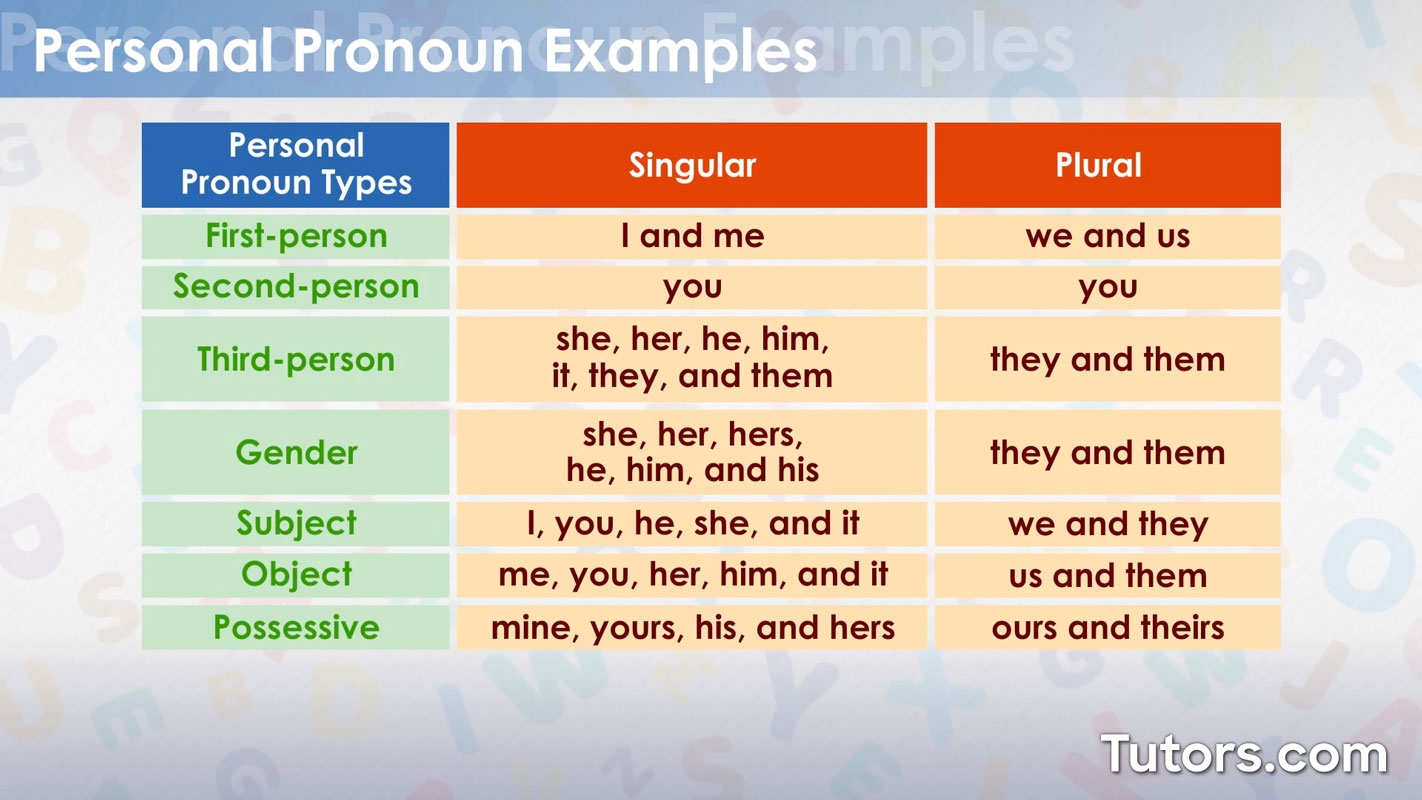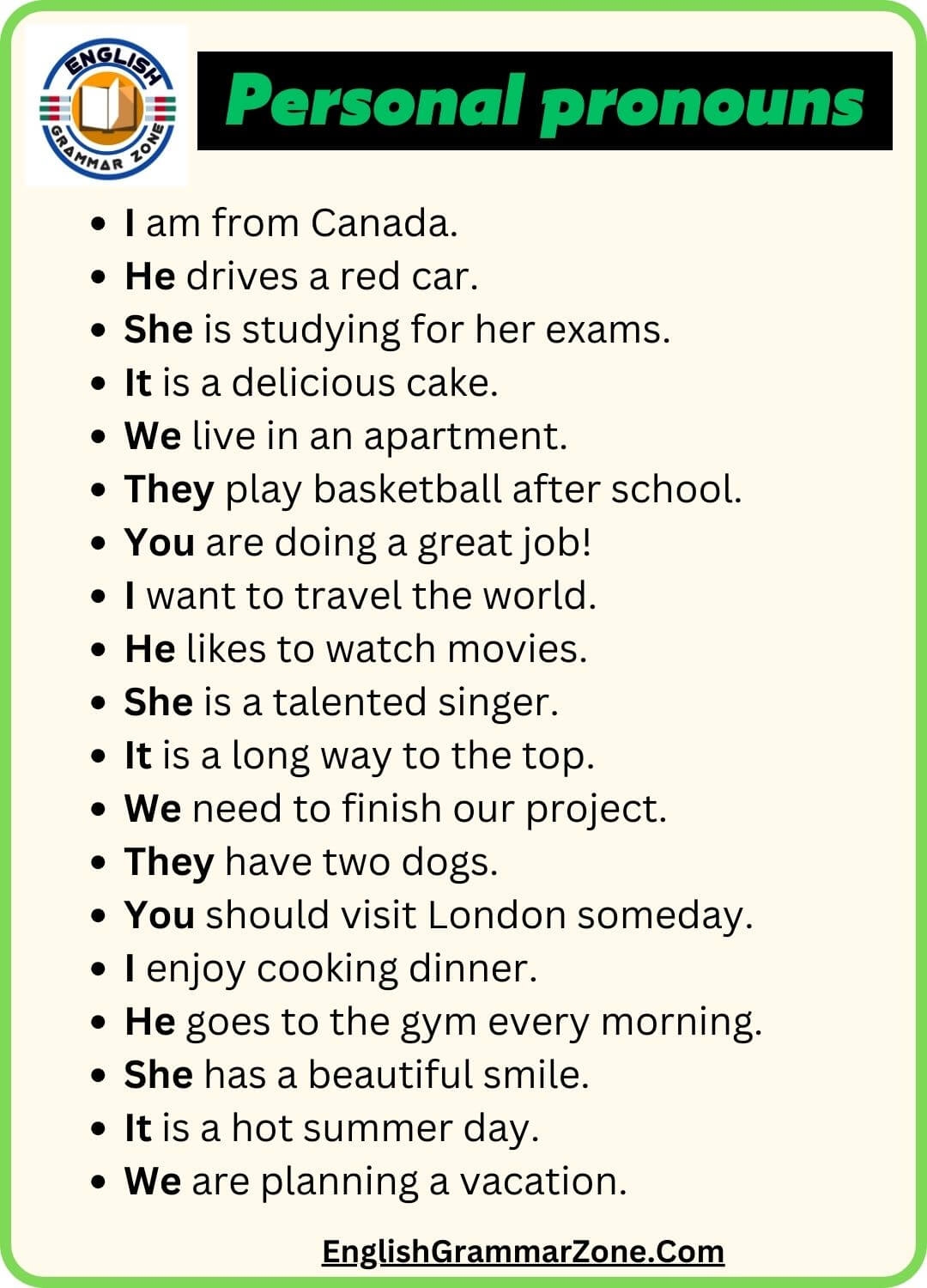Examples of Personal Pronouns
Personal pronouns are words that we use to refer to people or things without having to repeat their names. They are an essential part of the English language and help make communication more efficient. Understanding personal pronouns is crucial in both speaking and writing. Here, we will explore some examples of personal pronouns to help you grasp their usage better.
Personal pronouns can be divided into different categories, including subject pronouns, object pronouns, possessive pronouns, and reflexive pronouns. Each type of personal pronoun serves a specific purpose in a sentence and helps convey meaning effectively. By learning and using personal pronouns correctly, you can enhance the clarity of your communication.
Examples of Personal Pronouns
Subject Pronouns: Subject pronouns are used as the subjects of sentences. They include pronouns such as “I,” “you,” “he,” “she,” “it,” “we,” and “they.” For example, “She is going to the store.”
Object Pronouns: Object pronouns are used as the objects of verbs or prepositions. Examples of object pronouns are “me,” “you,” “him,” “her,” “it,” “us,” and “them.” For instance, “I gave her the book.”
Possessive Pronouns: Possessive pronouns show ownership or possession. They include pronouns like “mine,” “yours,” “his,” “hers,” “ours,” and “theirs.” For example, “That book is mine.”
Reflexive Pronouns: Reflexive pronouns are used when the subject and object of a sentence are the same. They include pronouns such as “myself,” “yourself,” “himself,” “herself,” “itself,” “ourselves,” and “themselves.” An example would be, “She hurt herself while running.”
Understanding and using personal pronouns correctly is essential for effective communication. By incorporating these examples of personal pronouns into your everyday language, you can improve the clarity and coherence of your sentences. Practice using different types of personal pronouns in various contexts to enhance your language skills and become a more proficient communicator.
In conclusion, personal pronouns play a crucial role in English grammar and communication. By familiarizing yourself with examples of personal pronouns like subject pronouns, object pronouns, possessive pronouns, and reflexive pronouns, you can elevate your language proficiency and convey your thoughts and ideas more accurately. Remember to use personal pronouns appropriately in your writing and speech to ensure effective and clear communication.
